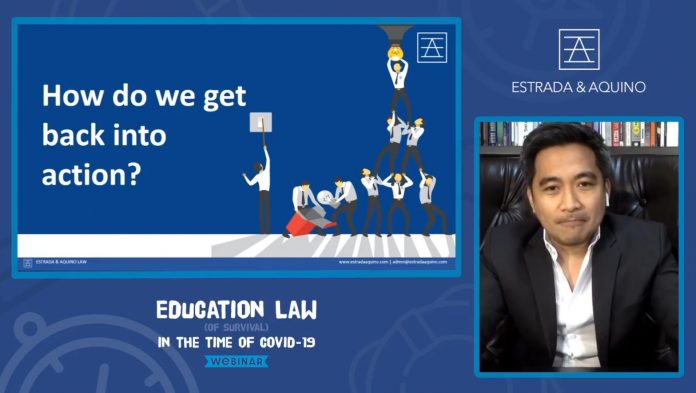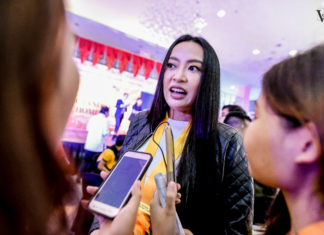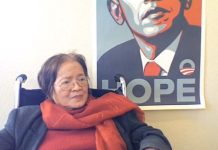ONLINE classes will be the new norm in education but schools should train teachers and the government should help improve internet access, education stakeholders said.
Education lawyer Joseph Noel Estrada said purely face-to-face learning would become viable again only with the availability of a vaccine against the coronavirus disease 2019 (Covid-19).
“Online classes were more of a privilege for institutions to go into, and not for everyone, but now we don’t have a choice,” he said in the online seminar “Education Law (of survival) in the time of Covid-19” on the REX Book Store Facebook page.
On the technical aspect, two things need to be fixed urgently: bandwidth and home access to WiFi internet, Estrada said.
“Not all families can afford [WiFi access]. Here, we need the intervention of the government to address that, or else education would no longer be accessible,” he said.
The latest Speedtest Global Index ranked the Philippines 103rd among 139 countries in terms of mobile internet speed.
The country’s average internet speed stood at only 14.24 Megabits per second, far below the global average of 30.37 Mbps as of March this year.
Internet speeds deteriorated following lockdowns imposed to contain the Covid-19 outbreak.
The lack of internet access, raised by students on social media, had forced many schools to end their academic years and allow mass promotions.
The Commission on Higher Education (CHEd) released an advisory on April 13 suggesting a “flexible” mode of instruction.
It said colleges and universities may deploy “available flexible learning and other alternative modes of delivery in lieu of in-campus learning if they have the resources to do so.”
The Department of Education (DepEd) also prescribed continuing classes online, under Memorandum No. 042.
“Teachers with available resources and access to the internet are highly encouraged to explore the Online Alternative Learning Delivery Platforms… that may be used for delivering distance teaming during periods of class suspensions and similar circumstances,” it said.
Public schools use DepEd Commons as an online learning platform to continue classes. It is optional for now but is “highly encouraged.”
Google for Education trainer John Gary Garcia said many teachers were not open to be trained to use online tools and the Philippines was coming in very late in the game.
“The education sector is ‘very late’ in the process of digitalization of education… We are on our way to be ready but this will entail time to train educators who are willing to be trained,” he told the Varsitarian in an online interview.
Estrada stressed that training of teachers and school personnel should be prioritized before acquiring sophisticated learner management systems and cyber-infrastructure.
Teachers who are reluctant to use virtual teaching options have no choice but to learn, he said.
“Without a trained personnel to implement, [online platforms] will all be useless. Unahin muna ang training ng faculty at ng human resources, especially our teachers,” he said.
Students also need online strategies
“On the part of the student and teachers with limited access, they need to strategize when to go online,” Garcia said.
He urged telecommunications companies to help students and teachers in improving internet access.
“What I suggest is, they offer an hour of free internet for the students and educators with existing load. They need to earn, but their infrastructure is already in place,” he said.
Telco companies have partnered with the education department to grant free access to five million users of DepEd Commons.


















